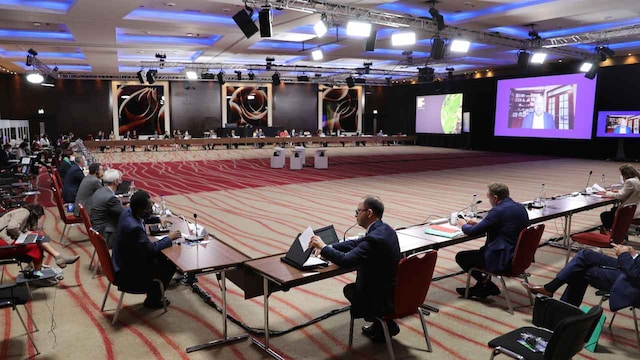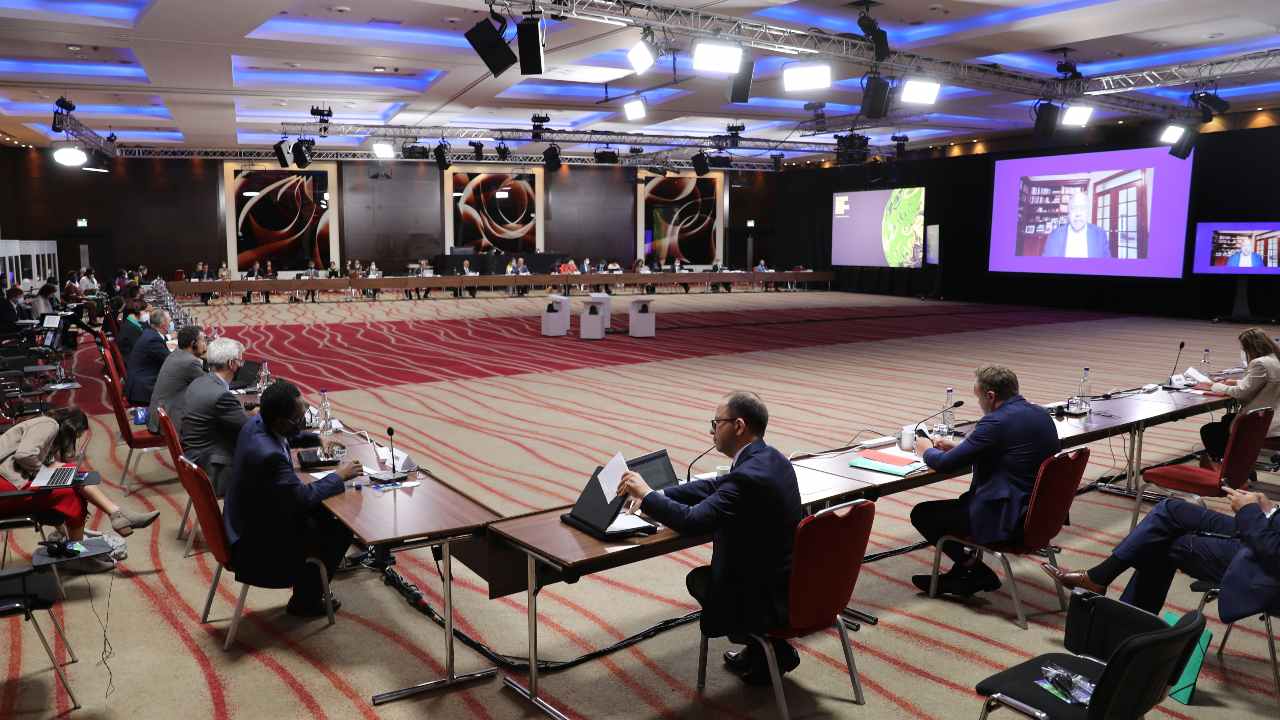India is the third biggest carbon emitter after China and the US and during the G20, India stated that developed countries should lead the way in reducing emissions.

Ministers from over 50 countries gather together to discuss key issues of climate change and global action. Image credit: Cabinet Office/Flickr
A two day, in-person closed-door ministerial conference was held in London by the United Kingdom ahead of the Conference of the Parties (COP26). This meeting was attended by around 50 countries’ climate and environment ministers of various countries to begin talks before the important climate summit that will take place in November in Glasgow.
The UK is presiding over the meeting this year after it was postponed last year due to the COVID-19 pandemic. Alok Sharma is be heading this 197-nation summit as the President of the COP26.
pandemic. Alok Sharma is be heading this 197-nation summit as the President of the COP26.
“It was a hugely refreshing experience, to be sitting across the table from one another,” said Sharma as he sat along with the United Nations’ climate chief, Patricia Espinosa, during a press conference.
“There was a sense of common endeavour and a shared desire to address the climate crisis before us.”
This meeting is coming on the heels of various natural and climate disasters that have taken place this year itself, from wildfires, heavy rains and floods, cyclones, the ocean catching on fire, droughts, etc.
Alongside the COP26 meeting, around 200 scientists from around the world are meeting up online to validate the findings of the UN science report by the Intergovernmental Panel on Climate Change (IPCC). The report is supposed to be released in August and is supposed to help further the decisions taken during the COP26.
According to a statement released by the British government, Sharma had hoped to build common ground and “sketch the outline of the Glasgow outcome.”
“The world will be watching to see whether we come together in Glasgow and do what is necessary to turn things around in this decisive decade,” he added.
“The dialogue has started, (but) there is a lot of homework to be done in the next 90-something days,” Espinosa said.
India gives its miss
While 51 countries were invited to attend this primer, India’s presence was glaringly obvious. This comes after the country made some strong statements at the G20 meetings.
The official reason was that the minister could not attend due to technical difficulties.
Gaurav Khare, spokesperson for the Ministry of Environment, Forest and Climate Change also said that the government has decided to skip this meeting as they had made India’s stance clear during the G20 summit that was held on 15-16 July.
Khare said, “India attended the G20 ministerial meeting and made its stand clear. The UK climate ministerial meeting was right after that. It was being held in the middle of the Parliament session, so it was decided that this time we cannot be present physically, but we never decided not to participate.”
“At an official level we wanted to participate virtually but could not because of various technical issues,” he added.
A COP26 spokesperson told Bloomberg that Sharma “has constructive ongoing dialogue with his counterparts in India, having visited the country earlier this year where he met Prime Minister Narendra Modi.”
India is also the third biggest carbon emitter after China and the US. During the G20, India stated that developed countries should lead the way in reducing emissions. We also called out other countries for their carbon neutral announcements and told them to reduce their emissions.
During the G20 Energy and Climate Joint Ministerial Meeting, the Union Power Minister Raj Kumar Singh urged the G20 nations who have higher than average per capita greenhouse gas emissions, to reduce them. This he believes will “vacate the carbon space to some extent and support the developmental aspirations of the developing nations.”
The G20 was a failure in everyone’s eyes as it did not make any significant progress in coming to a consensus on the wording to be used in the final climate change communique. India, Russia, China and Turkey also resisted the idea of shutting down coal power plants and fixing on a timeline to begin its phase-out. Currently, India generates more than 40 percent of its electricity from coal.
With input from agencies










